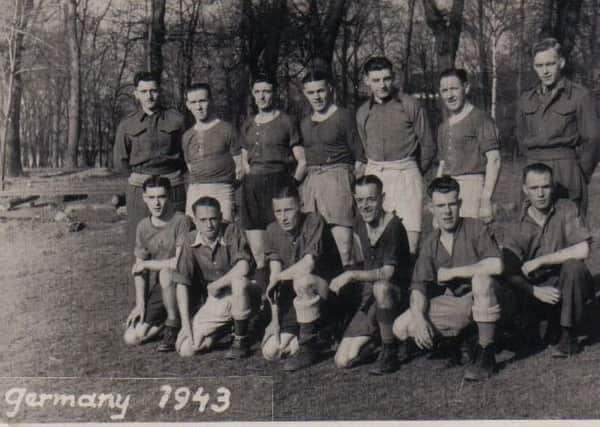An independent soul who never forgot wartime experience


James Owen Storey, known as Jim, was born on December 6, 1919, at Hamsterley Colliery, County Durham. He was the third of seven children, six brothers and one sister born to William and Elizabeth Storey.
At an early age, the family moved to the other side of the River Derwent to live in Blackhall Mill down the hill from Chopwell. He went to school in Low Westwood, crossing the river every day via a rope bridge which obviously led to some high jinks between the brothers.
Advertisement
Hide AdAdvertisement
Hide Ad

On leaving school, as far as we know, he started work down the local pit and stayed there until the outbreak of the Second World War. In 1938, along with his pals, he joined the Territorial Army Reserve and when war was declared in 1939 was enlisted in the 1st Battalion Tyneside Scottish, The Black Watch, with the rank of private. He was sent to a training camp in Gateshead where he was prepared for war. He was trained to use guns and how to survive, but as he said many years later, it did not do any good once they went overseas as there was little food or ammunition.
On April 23, 1940, he sailed from England and landed in Le Havre in northern France. From there, he was sent by train to eastern France near the German front line and billeted in a farm sleeping in a hayloft. He was then sent to a town near the Belgian border to help build a new runway for the RAF.
But on May 18, the Germans broke through and they were ordered to turn back and march to Dunkirk. He never arrived. Jim often told the tale, in his later years, of the battle that led to his capture. Of how most of his comrades were killed in a cornfield near a little French village, of how he was shot through his tin helmet, the bullet passing through and missing his head by millimetres, of how he was shot in the back, but saved by the ration tins he was carrying in his haversack, and of how one bullet caught him in the chest, but smashed his steel mirror and hit the thick little prayer book belonging to his mother that she had given him the day he left home for war and he kept in the breast pocket of his battle-dress.
The bullet broke the little crucifix inside the prayer book but saved his life. He often said that someone must have been praying for him that day because he felt it was a miracle that he survived. He held that little book in his hand until shortly before he died.
Advertisement
Hide AdAdvertisement
Hide Ad